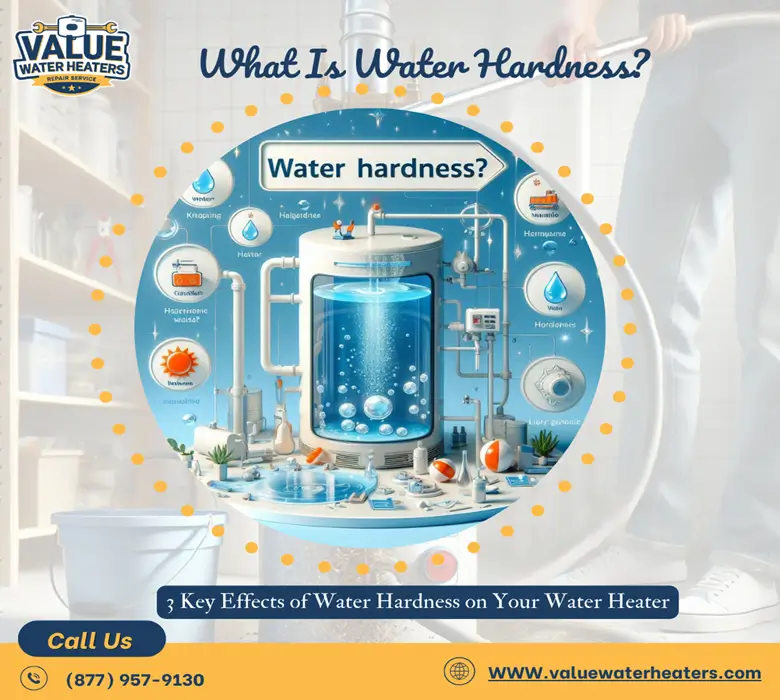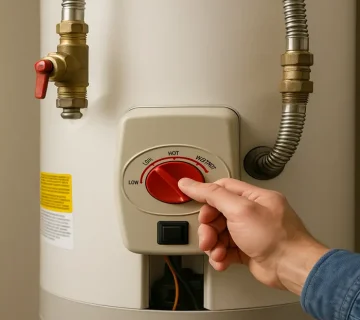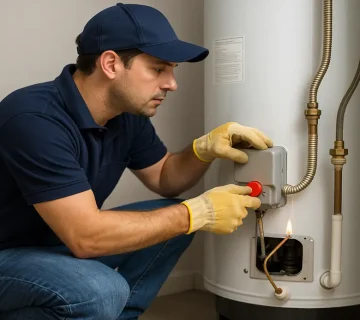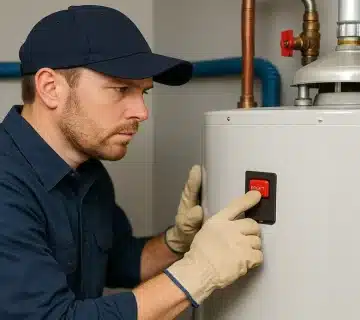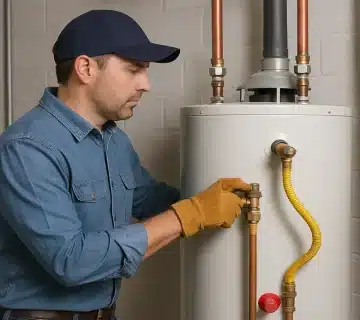Water hardness refers to the concentration of dissolved minerals, primarily calcium and magnesium, in water. While water hardness isn’t a health risk, hard water can have a significant impact on your home’s plumbing and appliances, especially your water heater. Understanding how water hardness affects your water heater can help you take steps to maintain its efficiency and longevity.
1. Mineral Buildup and Reduced Efficiency
When hard water is heated, minerals like calcium and magnesium precipitate out of the water and form a hard, chalky substance called scale. In traditional tank water heaters, this scale accumulates at the bottom of the tank, creating a layer that acts as an insulating barrier.
Here’s how water hardness affects your water heater:
- Higher Energy Consumption: The heating element must work harder to transfer heat through the scale, increasing energy usage and utility bills.
- Reduced Heating Efficiency: It takes longer to heat water, leading to slower hot water recovery times.
- Increased Wear and Tear: Over time, the strain on the heating element and other components can lead to premature failure.
In tankless water heaters, the buildup occurs within the heat exchanger, restricting water flow and decreasing efficiency. Without regular maintenance, this can lead to costly repairs.
2. Accelerated Corrosion and Component Damage
Hard water accelerates corrosion in water heaters by reacting with metal components, such as the tank lining and the anode rod. The anode rod is designed to attract corrosive elements and protect the tank, but in hard water conditions, it depletes faster than usual.
If the anode rod isn’t replaced in time, corrosion can lead to:
- Leaks: The tank becomes susceptible to rust, which can result in costly leaks.
- Shortened Lifespan: Corrosion weakens the structural integrity of the tank, reducing its overall lifespan.
For tankless systems, mineral deposits can damage internal components, like the heat exchanger, causing reduced performance and frequent breakdowns.
3. Increased Maintenance and Repair Needs
Hard water increases the need for regular maintenance to keep your water heater functioning properly. Without proper care, the effects of hard water can escalate, leading to more frequent repairs and higher costs. Common issues include:
- Clogged Valves and Pipes: Mineral deposits can clog the water lines, reducing water pressure and affecting appliance performance.
- Noisy Operation: In tank models, the buildup of sediment causes popping or rumbling sounds as water heats and bubbles through the scale.
- Lower Hot Water Output: Over time, the capacity of the water heater diminishes as sediment takes up space in the tank.
How to Prevent Hard Water Damage
Fortunately, there are several ways to mitigate the effects of water hardness and protect your water heater:
- Install a Water Softener
A water softener removes calcium and magnesium ions, preventing scale buildup and reducing the strain on your water heater. - Regular Flushing and Descaling
- For tank models: Flush the tank annually to remove sediment.
- For tankless models: Descale the system regularly to maintain optimal water flow.
- Replace the Anode Rod
Inspect and replace the anode rod every 2-3 years to prevent corrosion. - Use a Sediment Filter
Install a sediment filter to catch larger particles before they reach your water heater. - Schedule Professional Maintenance
Work with a professional to inspect and service your water heater regularly. This ensures any issues caused by hard water are addressed promptly.
Why Water Hardness Matters
Addressing the impact of water hardness on your water heater not only extends the appliance’s lifespan but also improves energy efficiency and saves you money in the long run. If you’re unsure about your water’s hardness level or need help maintaining your water heater, consider consulting a professional service provider.
For expert advice and professional water heater services, visit Value Water Heaters or explore their helpful blog for more tips. Protect your water heater and enjoy reliable, efficient hot water for years to come!
Stay connected with us for more tips and updates! Follow us on Facebook, check us out on YouTube, and find us on Google Maps for easy directions!

